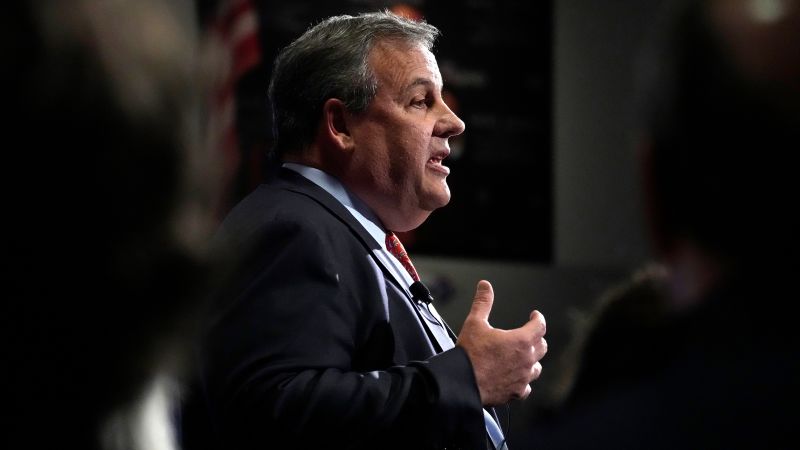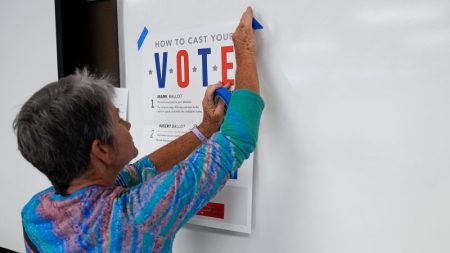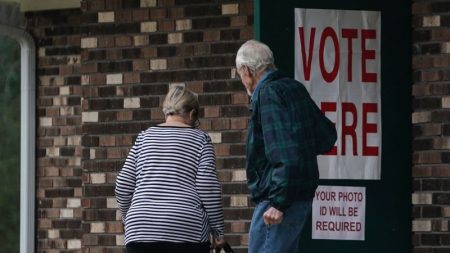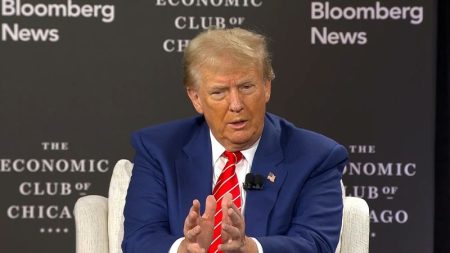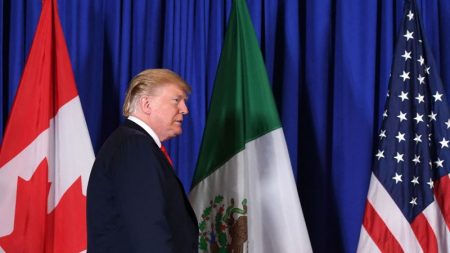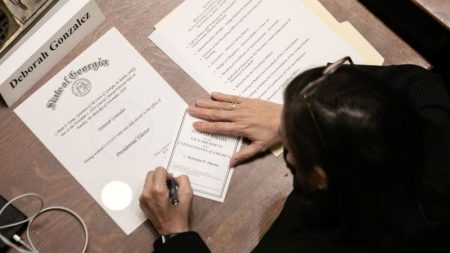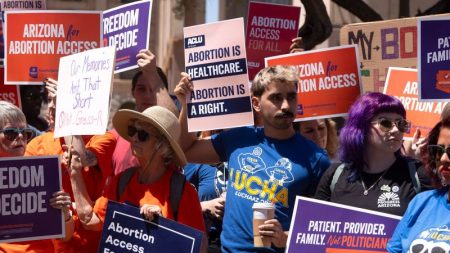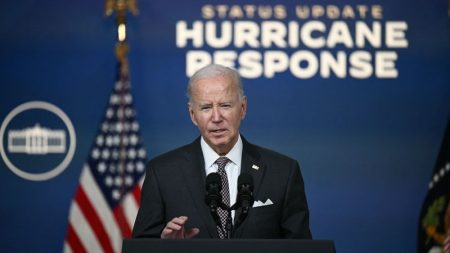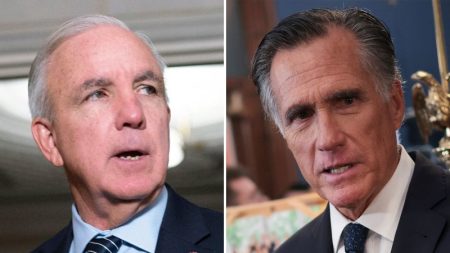Former New Jersey Gov. Chris Christie barged into the Republican presidential primary last week with a scathing rebuke of front-runner and former President Donald Trump.
Now, less than a week after formally entering the race and on the eve of Trump’s court appearance in South Florida on an indictment over his alleged mishandling of classified documents, Christie, at a CNN town hall Monday night, will have another opportunity in front of a national audience to make the political case against Trump – and for himself.
In New Hampshire last week, Christie said he did not view those two efforts to be in conflict. Instead, he argued, they should be viewed as natural complements.
“The reason I’m going after Trump is twofold,” Christie explained to a friendly crowd. “One, he deserves it. And two, it’s the way to win.”
Christie also used that forum to jab his primary rivals over their reluctance to directly engage with the former president, pointing to an event hosted by Iowa Sen. Joni Ernst days before in Des Moines.
“Not one of (the primary candidates there) mentioned his name. They would say cute little things like ‘new generational leadership’ or ‘we need a leader who looks forward, not backwards,’” Christie said, mocking the catchphrases used by other Republican candidates determined to go around, not through, Trump on the campaign trail.
All told, it was a dramatic first step onto the campaign stage. The question now: Where does he go from there?
Here are four things to watch at the town hall with Christie on Monday:
Christie’s first volley against the former president last week at his campaign kickoff provided the most comprehensive case against Trump’s bid for a second White House term of any of the 2024 GOP candidates.
He won’t exactly be hard-up for new material. The unsealing of the classified documents indictment has given Americans a window into Trump’s post-presidential conduct and, as prosecutors allege, his flouting of national security law.
Some of the scenes described in the indictment border on dark comedy, involving scenes of Trump waving around top secret documents to random visitors.
Christie, in a CNN interview last week, described the details of the indictment as “damning.” The former prosecutor has an opportunity to advance his cause Monday by digging further and explaining – in his no-nonsense style – what it all means. His background also affords him a chance to credibly state, for those willing to hear it, just how dire Trump’s circumstances have become.
It’s a good bet that Christie will come out hammering Trump. But even if that is a key part of a broader strategy to elevate his own campaign, the former New Jersey governor will need to make an affirmative case for himself.
More to the point, he needs to make a compelling argument directed at Republican primary voters. His remarks so far have delighted Never Trumpers in the GOP and Democrats happy to see Republicans at odds, but winning over the Republican voters who will ultimately decide the nomination is a tougher task.
Other Republican candidates, including those willing to be at least passingly critical of Trump, have underlined their conservative bona fides. Pence on the trail and in a CNN town hall last week talked up his anti-abortion record and fiscal hawkishness. Nearly all of the Republicans in the race have denounced the “radical left” and promoted anti-transgender legislation that have been introduced at the state level.
But those arguments might not suit Christie. He hinted as much last week, telling voters in New Hampshire that his rivals were “talking about issues that are so small that sometimes it’s hard to even understand them.”
So what are Christie’s big ideas? His force of personality is obvious – as anyone who remembers his eight years in charge of New Jersey will recall. But the stakes are higher now, and the national GOP electorate, in this primary, is different from the voters he faced in the Garden State.
It’s tough to imagine now, but Christie was one of Trump’s most loyal establishment allies for nearly all of the former president’s time in office. Christie’s own onetime campaign manager, Bill Stepien, ran Trump’s 2020 operation. As a pundit, Christie defended Trump on television. Behind closed doors, he advised him, including serving as a key figure during his 2020 debate preparations.
Of course, it was during that prep period in late September 2020 that Christie believes he contracted a serious case of Covid-19 from Trump, who did not tell anyone in the room that he’d tested positive. On a personal level, that alone might be a reason to cut ties with someone.
But as a political matter, and in Christie’s own telling, his break with the former president was almost entirely the result of Trump’s actions before and during the January 6, 2021, insurrection at the US Capitol. Those actions, of course, came after Trump had lost the election to Joe Biden. If Trump had won in 2020, would Christie still be by his side?
Squaring his about-face from Trump acolyte to the former president’s chief GOP critic might be difficult, but to win over Republicans who aren’t already on his side, it’s something he must at least attempt.
Well before he withdrew from the 2016 presidential primary and endorsed Trump, giving new credibility to his insurgent campaign, Christie was viewed as a formidable politician – not only in his home state of New Jersey but on the national stage. Some Republicans tried desperately to lure him into the 2012 primary, seeing him as a better matchup with President Barack Obama.
Christie ultimately sat out the race, then drew the ire of conservatives for being cordial with Obama in the aftermath of Superstorm Sandy, which devastated parts of New Jersey. During his two terms in office, in an otherwise heavily Democratic state, Christie leveraged his power into political gains for conservatives, especially on taxes.
What’s more, a large piece of his personal political brand was staked on his boisterous attitude and willingness to engage with political opponents, whether they be elected officials, schoolteachers or – though he was never legally implicated in the Bridgegate scandal – Democratic mayors who refused to endorse him. Christie last week said those antics were materially different from Trump’s outbursts because he was ultimately serving a cause greater than himself.
Christie seems unlikely to apologize for any of that, but the question as he prepares to take the stage Monday is whether and to what extent he uses his past to sell voters on his future.
Read the full article here



